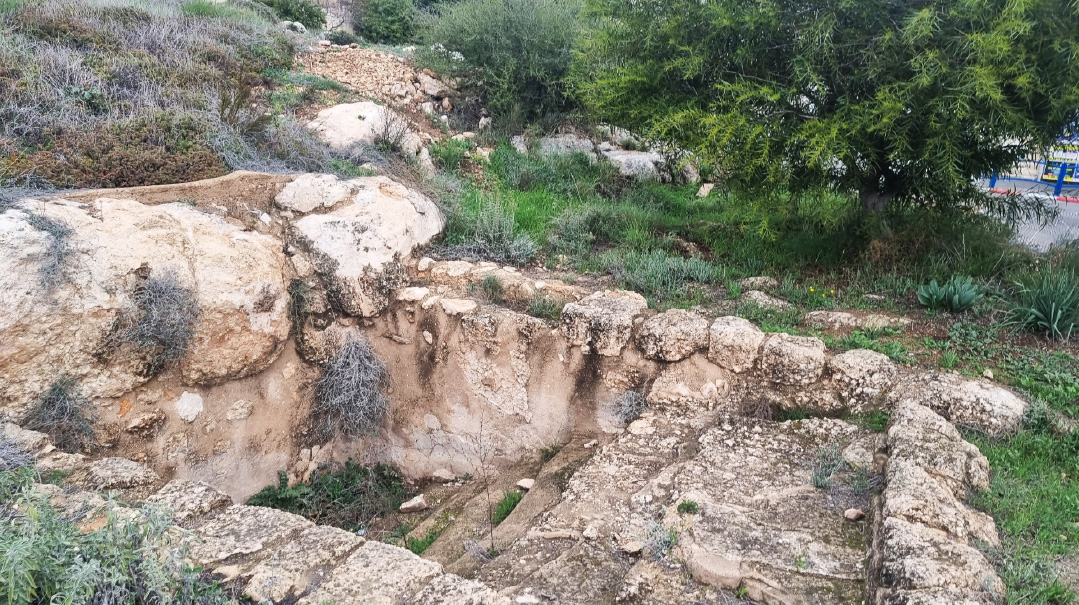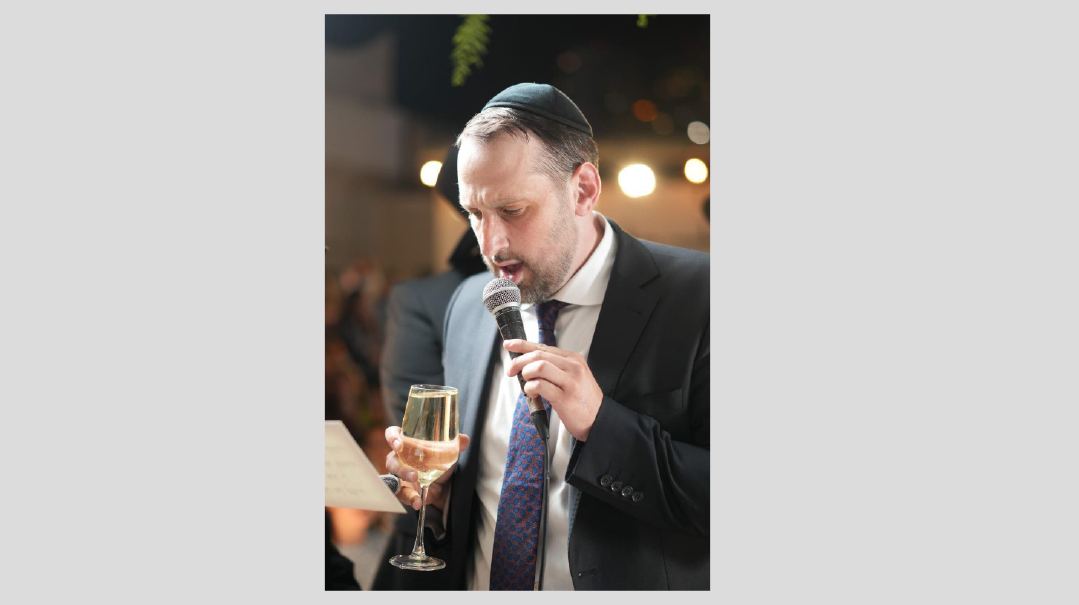Blockbuster Finale

There is literally no other people or society that remains essentially unchanged from ancient times until today

M
ost people don’t get emotional when visiting their local park. Then again, they don’t have a park like mine, built on top of a Jewish village from two millennia ago.
A few years ago, in the course of mapping out a new building project in Ramat Beit Shemesh, the surveyors found a settlement that had clearly housed our religious ancestors. Behind the outer fortifications that we’d unwittingly walked past so often lay the world of the RBS founding fathers.
Not for them, working American hours for outsourcing firms, it seems. They were employed in the wine and oil business.
The excavations revealed a beautifully preserved wine press. The basin where the grapes were trodden, the channel where the juice ran off, and then the lined pit where it was stored are all still there, waiting for the next batch of Beit Shemesh Bordeaux.
A few meters over lies the olive press. Large millstones about the size of an SUV tire lie a-jumble. The storage vats that held the precious liquid invite kids to scramble all over them now.
But perhaps most amazing about the 2,000-year-old relic is the mikveh. Taharah was a basic component of the manufacturing process back then. Foodstuffs as basic as wine and oil had to be produced in purity — otherwise, a good percentage of the population couldn’t or wouldn’t touch it.
Hence, the fact that all over Eretz Yisrael, excavated presses come with a mikveh. Not the fancy, mosaic-paved versions found in the villas of the wealthy beneath Yerushalayim’s Old City, but the utilitarian, no-frills model of a production line.
Without fail, gazing over that little village gives me a strange sense of timelessness, of then and now merging. As if we can peel away the layers of modernity, and touch the ancients.
It’s easy to imagine an old-timer suddenly materializing in his long robes next to the climbing frame or slide. What would happen if we ended up on the same park bench? After the initial culture shock, we’d probably find a surprising amount in common.
“Shalom aleichem,” he might say, and I’d understand him.
Blinking into the sunshine, he might ask the way to the nearest shul where we’d daven the same Minchah.
If I offered him a meal, he’d make the same brachah, and if it was Shabbos, we could follow along with the same Krias HaTorah.
That’s why the local park makes me misty-eyed. Because it’s living proof of the scarcely believable journey that we’ve had as a people on our way back home.
The reality of our daily lives as Jews is the stuff of fiction. Forget, for a moment, the return to Eretz Yisrael. There is literally no other people or society that remains essentially unchanged from ancient times until today.
Even cultures as ancient as the Chinese that have occupied the same patch of land for millennia are different from their ancestors in fundamental ways. Beyond some Confucian sayings, what does today’s Beijing resident have in common with his forebear?
Externals of dress, employment, and lifestyle apart, we have more in common with the residents of ancient Israel than we do with our fellow citizens of New York or London.
Our core values, beliefs, and daily life haven’t changed all that much. Their lives revolved around Torah, as do ours. Their constant was Jewish practice, as is ours.
In that phrase beloved of nonfiction blurb writers, you simply can’t make this stuff up.
There is literally no precedent of a nation making the round trip from exile and back, and returning home after thousands of years, essentially unchanged.
It’s only happened once in history — to us.
Some people, like Angelo Piattelli, can actually trace that journey. Piattelli made aliyah from Rome to Yerushalayim a few years ago, and his surname — an Italianization of the Latin de Pomis — attests to his descent. The Hebrew original Min Hatapuchim is one of the four families who left ancient Yerushalayim to settle in the Roman capital thousands of years ago.
Skeptics of the Jewish People choose to ignore those startling facts. A notorious example of the kind is British historian Arnold Toynbee, who, in a famous debate with Israeli ambassador Yaakov Herzog at Toronto’s McGill University in the 1950s, labeled Jews as the “fossil” of an ancient civilization.
At the other pole are philo-Semites such as Canadian opposition leader Pierre Poilievre. At a memorial last year on the first anniversary of October 7, he gave a speech that deserves a prominent place in the oratory of the era, for its intuitive sense of Jewish history.
Drawing on experiences that he’d had on a visit to Israel as a student years ago, he recalled hitchhiking around the country, witnessing an unprovoked Hezbollah attack on northern Israel, and then spending a Shabbos with a family in Beitar Illit.
He spoke of the rabbi and his wife and beautiful family, singing songs while seated around the table, and then he turned lyrical.
“The Jewish People are the only people I know of who sing in the same language, worship the same faith, in the same country as they did 3,000 years ago,” he said.
“I don’t know what the world will bring tomorrow, much less a hundred years from now,” he continued. “But I do know that a thousand of years from now, as the sun goes down on Fridays, there will be a Shabbat in Israel, and those songs will still be sung. The Jewish People will go on, and they will still say ‘Am Yisrael Chai.’ ”
Poilievre’s stirring words of hope have often come back to me over the last few months, as the horizon for the Jewish People continues to darken.
After 16 months of war, we seem trapped in an endless nightmare. The emaciated Muselmänner of the Holocaust have been resurrected by Hamas. But the price for freeing our hostages is releasing thousands of degenerates to once more try to kill Jews.
President Trump has come up with a program for Gaza that seems more blessed fantasy than actionable reality, and while Iran’s empire of terror has been severely weakened, Tehran remains a step away from a bomb.
It’s hard to think of a bleaker outlook.
That’s exactly why we all need to take a walk in my local park, to draw in the bracing air of hope among the swings and slides.
Because what those ancient presses and mikvehs tell us is that we’re in the middle of an extraordinary odyssey. The only rhyme or reason to our history is Divine, and that’s where we need to turn in these stormy times.
No one else could have directed the blockbuster that we’re living through.
No one else could have written the script of the last two millennia. No one else could have orchestrated the events of October 7, and no one else will dictate the finale.
(Originally featured in Mishpacha, Issue 1049)
Oops! We could not locate your form.







